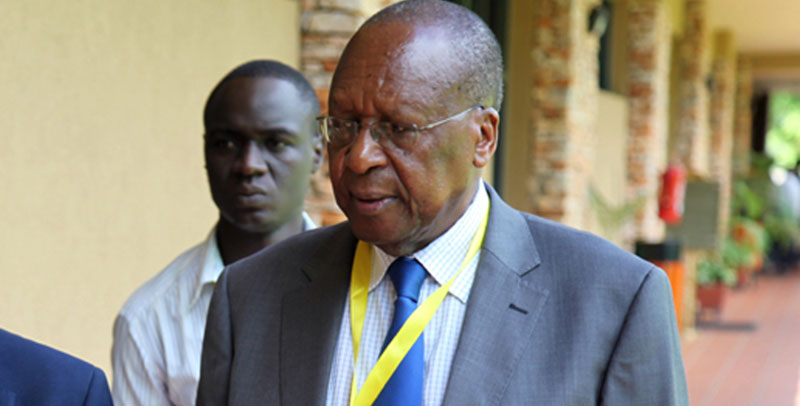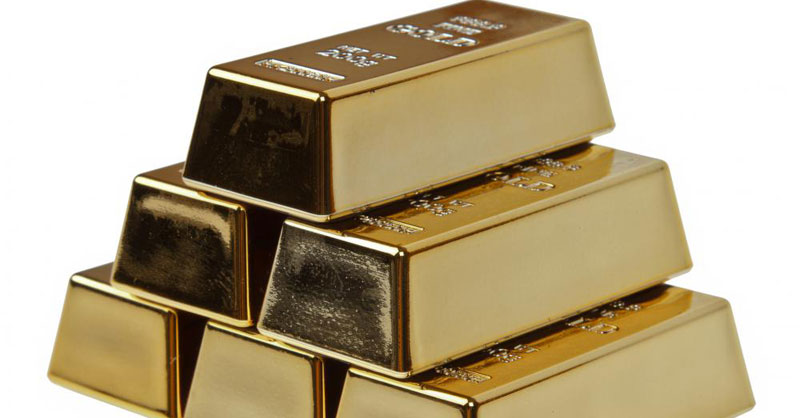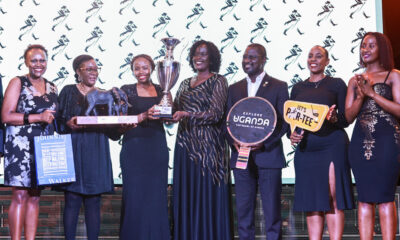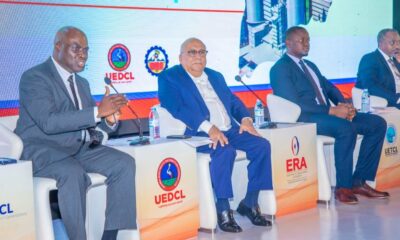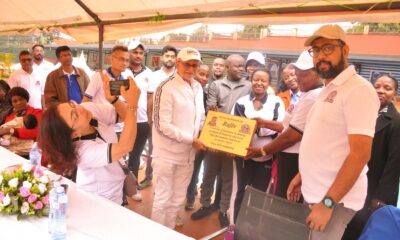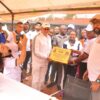Business
Uganda Starts Refining Gold
The first gold refinery in Uganda has been set up near Entebbe International Airport
The high-capacity African Gold Refinery (AGR) plant, except South Africa. According to the Company’s Chief Executive Officer, for sale Tony Goetz, it is a “state-of-the-art” refinery that turns gold dust into one-kilo bars. It also refines such other metals, such as silver.
AGR was launched in 2014 and has been operational in the last ten months. Its client base is here, getting the raw gold from the big mining concerns and the small-scale artisanal miners, but also provides the services to regional partners such as Tanzania, South Sudan, the Democratic Republic of the Congo (DRC); and as far afield as Ghana.
The company is a joint partnership between a Ugandan company owned by Uganda’s former minister of Energy and Minerals Richard Kaijuka aka Sir Rich and a Belgian gold refiner Tony Goetz. Kaijuka told online publication globserver.cn that setting up the refinery cost them US$20m (Approx. Ushs67bn).
The institution of the AGR plant is a typical example of the putting in practice of the Mineral Policy objectives of “value addition”, part of which was highlighted at the two-day mining conference organized by the Uganda Chamber of Mines and Petroleum (UCMP).
This aspect was stressed by the chief guest, President Yoweri Museveni, in the just-concluded conference dubbed, “Attracting Exploration Investment to Uganda’s Sector to realize its Maximum Value”.
While giving a historical summary of how the Government approached the issue of oil exploration and iron ore, Museveni discredited the case for exporting raw minerals to other countries as a “colonial economy”.
He gave a pertinent example of iron ore, which an Indian investor had proposed that; Uganda sell to that country at a measly US $36, when its processed value of steel amounts to in excess of US$500 a ton.
Apart from the loss in the give-away price of the raw materials, the country also loses in the export of jobs abroad and the capacity to build the labour technical expertise, he added.
Various speakers addressed this fifth UCMP conference and noted thatUganda has great economic opportunities in the mining sector.
The minister of State for Energy and Minerals, Peter Lokeris, who opened the meeting, said that the sector has the power to transform Uganda’s economy and adapt to the global times. He said that the aerial surveys that had covered 80% of the country exposed that “the opportunities and prospects in the mining sector are enormous.”
UCMP chairman, Elly Karuhanga, while referring to the Bible book of Revelation 21:19, cited that, for instance, all the 12 precious stones mentioned there are found in Uganda.
And the Director of Geological Survey and Mines, at the ministry of Energy, Edwards Kato, gave a cursory formation of the precious and base metals in Uganda from their aerial and geological surveys.
But what remains for the country to benefit from these God-given elements is to focus on their exploration. The former minister of Energy and Minerals, Richard Kaijuka, said that despite this abundance, there is lack of exploration capacity.
Now, the chairman of East African Gold and African Gold Refinery and also UCMP vice-chairman, Kaijuka demystified this reserves potential, saying that, “the reality check is that we are not focused. Until such time that every mineral on/under the ground is explored and properly identified, we should stop calling ourselves a mineral destination.”
He identified ten areas where mineral exploration and value addition will be crucial.
Among these areas are in: gold, limestone, iron ore, the three Ts (Tin, Tantalite, Tungsten), copper (and the related; nickel, lead, zinc, chromium), aluminum clays and salt. There is mining activity in some of these areas in which large companies are involved already.
In the cement industry, for example, Lafarge, is active in the Hima Cement facility, which is uncovering the limestone potential for cement production in Moroto in the Karamoja sub-region.
Some of the others are: the Dao Marble (exploitation in marble, also in Karamoja); Berkley Reef Limited (dealing in clays); Pearl Mining and Sipa Exploration Uganda Limited (nickel); Nanekara Mining Company (vermiculite); African Panther (tin); and, Elgon Mining Resources (gold exploration).
Despite Uganda having a high concentration of minerals, its position in African mining is undermined by several challenges and gaps in policy issues; electrification and transportation bottlenecks; taxation regimes; information and capacity building; and, technology transfer.
Echoing Kaijuka, the Head of European Union (EU) Delegation, Christian Smith, said that while EU will give financial help in the extractive industries, it still regarded “social responsibility” as vital.
“What is in the soil belongs to the people, and it is right for the state to manage it transparently on behalf of the people,” Smith said, adding that Uganda needed responsible investors in a clear regulatory framework anchored in the laws.
The United Nations Development Programme (UNDP), country director, Almaz Gebru, added her voice to this saying that the other key messages were: access to technology for the small scale miners; and, addressing the social and environmental framework to mitigate the adverse consequences of mining.
Comments



